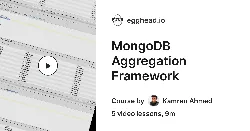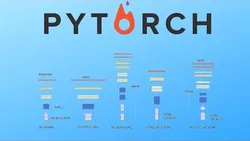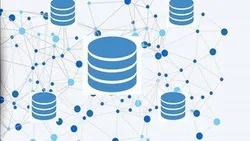
MongoDB Aggregation Framework 
MongoDB's Aggregation Framework enables users to create data processing pipelines that transform documents in a collection into an aggregated result. This video series provides an introduction to writing aggregations in MongoDB. ▼
ADVERTISEMENT
Course Feature
![]() Cost:
Cost:
Free
![]() Provider:
Provider:
egghead.io
![]() Certificate:
Certificate:
Paid Certification
![]() Language:
Language:
English
![]() Start Date:
Start Date:
On-Demand
Course Overview
❗The content presented here is sourced directly from egghead.io platform. For comprehensive course details, including enrollment information, simply click on the 'Go to class' link on our website.
Updated in [February 21st, 2023]
MongoDB has a quite powerful aggregation framework that allows you to write data processing pipelines. Documents in the MongoDB collection go through a series of stages or a pipeline that transforms them into an aggregated result. In this short video series, you will learn how to write aggregations in MongoDB.
(Please note that we obtained the following content based on information that users may want to know, such as skills, applicable scenarios, future development, etc., combined with AI tools, and have been manually reviewed)
1.You can learn how to use MongoDB Aggregation Framework to write data processing pipelines.
2.You can understand the stages of the MongoDB collection and how to transform them into an aggregated result.
3.You can gain knowledge of how to use MongoDB Aggregation Framework to analyze data and create reports.
4.You can learn how to use MongoDB Aggregation Framework to create complex queries and data manipulation.
5.You can gain the skills to use MongoDB Aggregation Framework to optimize data processing and improve performance.
[Applications]
After completing this course, users can apply the knowledge gained to create data processing pipelines in MongoDB. They can use the MongoDB Aggregation Framework to analyze data, create reports, and perform complex data transformations. Additionally, users can use the MongoDB Aggregation Framework to create data visualizations and dashboards.
[Career Paths]
1. Database Administrator: Database Administrators are responsible for the installation, configuration, and maintenance of MongoDB databases. They must have a strong understanding of MongoDB's features and capabilities, and be able to troubleshoot any issues that arise. With the increasing popularity of MongoDB, the demand for Database Administrators is expected to grow.
2. Data Analyst: Data Analysts use MongoDB's aggregation framework to analyze data and create reports. They must have a strong understanding of MongoDB's features and capabilities, and be able to write complex queries to extract meaningful insights from data. With the increasing demand for data-driven decision making, the demand for Data Analysts is expected to grow.
3. Data Scientist: Data Scientists use MongoDB's aggregation framework to build predictive models and uncover hidden patterns in data. They must have a strong understanding of MongoDB's features and capabilities, and be able to write complex queries to extract meaningful insights from data. With the increasing demand for data-driven decision making, the demand for Data Scientists is expected to grow.
4. Software Developer: Software Developers use MongoDB's aggregation framework to build applications that can process and analyze data. They must have a strong understanding of MongoDB's features and capabilities, and be able to write complex queries to extract meaningful insights from data. With the increasing demand for data-driven applications, the demand for Software Developers is expected to grow.
[Education Paths]
1. Bachelor of Science in Computer Science: This degree path provides students with a comprehensive understanding of computer science principles and technologies, including programming, software engineering, database management, and web development. Students will also learn about the latest trends in computer science, such as artificial intelligence, machine learning, and cloud computing. This degree path is ideal for those looking to pursue a career in software engineering, data science, or web development.
2. Master of Science in Data Science: This degree path focuses on the application of data science principles and techniques to solve real-world problems. Students will learn about data mining, machine learning, and predictive analytics, as well as the latest tools and technologies used in data science. This degree path is ideal for those looking to pursue a career in data science, analytics, or artificial intelligence.
3. Master of Science in Business Analytics: This degree path focuses on the application of analytics principles and techniques to solve business problems. Students will learn about data mining, predictive analytics, and machine learning, as well as the latest tools and technologies used in business analytics. This degree path is ideal for those looking to pursue a career in business analytics, data science, or artificial intelligence.
4. Doctor of Philosophy in Computer Science: This degree path provides students with a comprehensive understanding of computer science principles and technologies, including programming, software engineering, database management, and web development. Students will also learn about the latest trends in computer science, such as artificial intelligence, machine learning, and cloud computing. This degree path is ideal for those looking to pursue a career in research or academia.
Course Provider

Provider egghead.io's Stats at AZClass
Discussion and Reviews
0.0 (Based on 0 reviews)
Explore Similar Online Courses

Generative Adversarial Networks (GANs) and Stable Diffusion

EfficientNet from scratch in Pytorch

Python for Informatics: Exploring Information

Social Network Analysis

Introduction to Systematic Review and Meta-Analysis

The Analytics Edge

DCO042 - Python For Informatics

Causal Diagrams: Draw Your Assumptions Before Your Conclusions

Whole genome sequencing of bacterial genomes - tools and applications

Searching for Text in MongoDB

Learning MongoDB - NoSQL database


Start your review of MongoDB Aggregation Framework